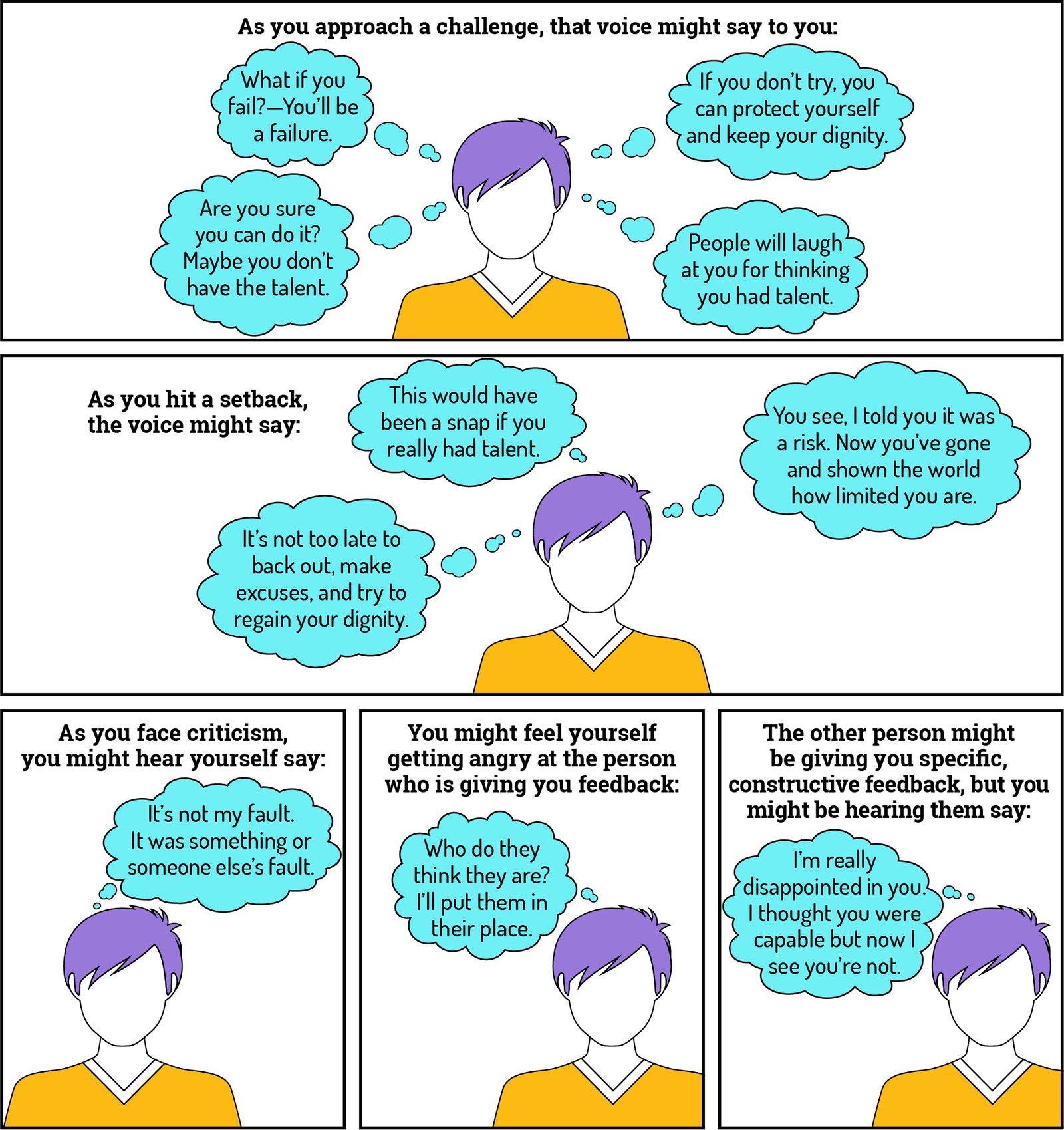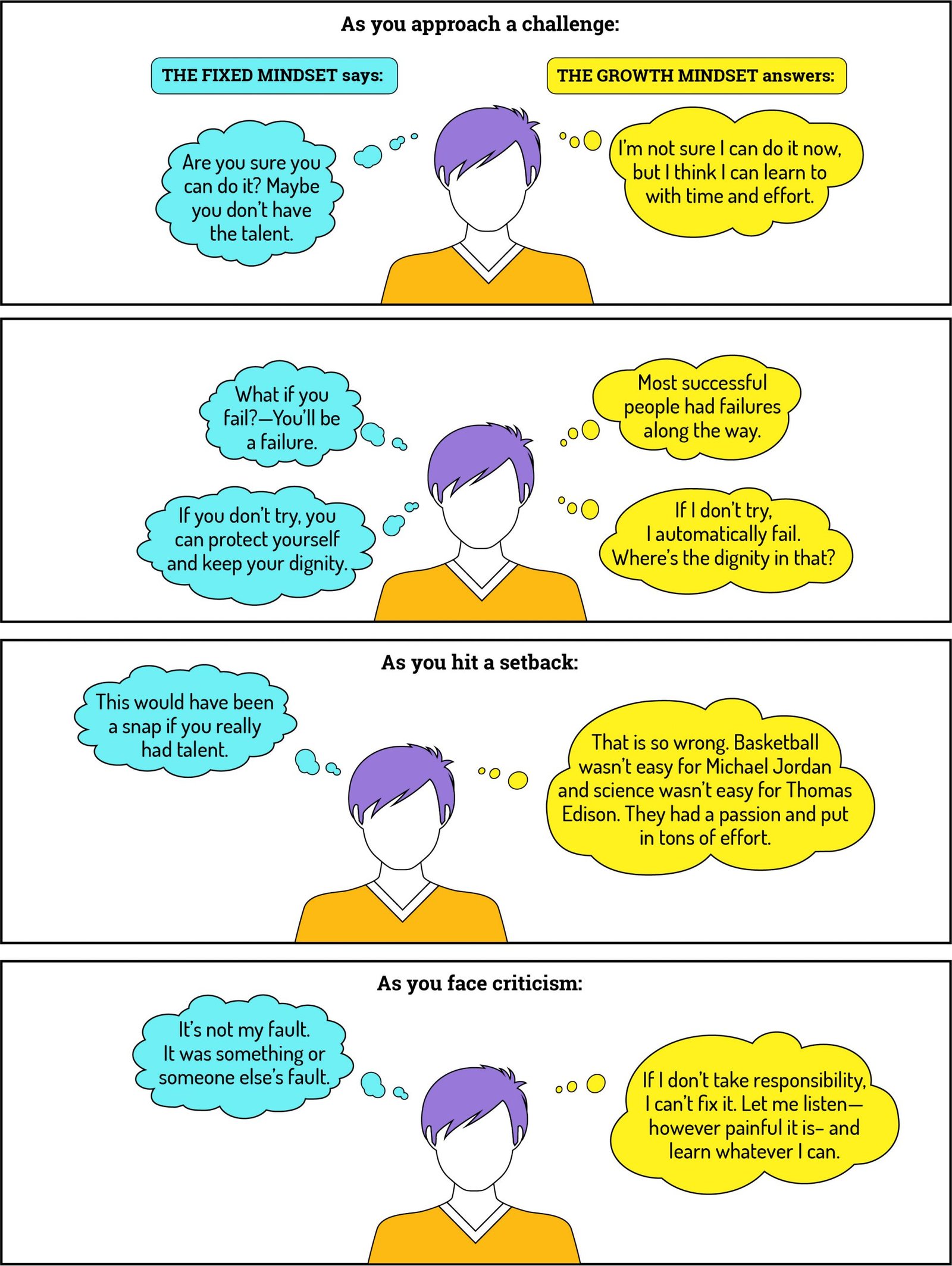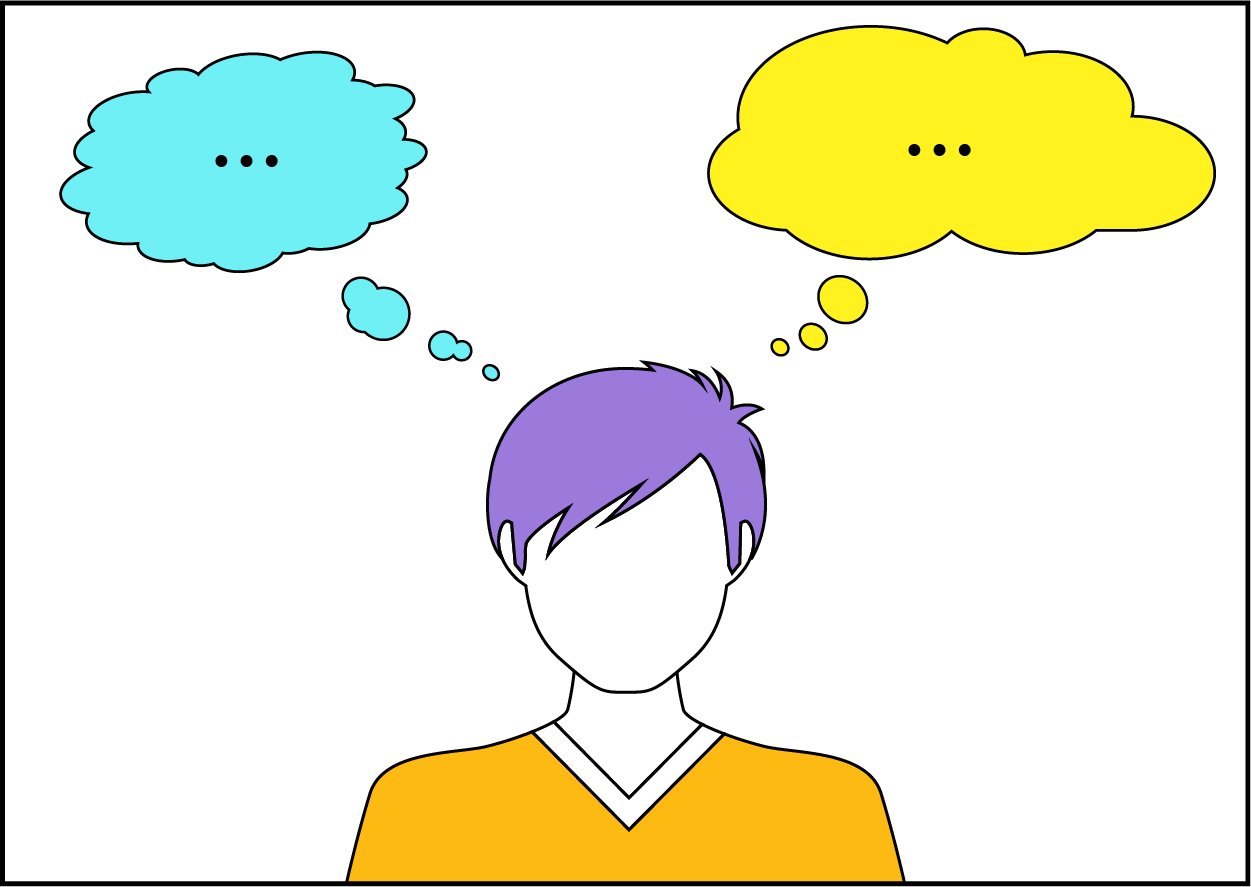Mindsets
Mindsets are beliefs – beliefs about yourself and your most basic qualities and abilities
–
What is a growth mindset?
The New Psychology of Success, “[In a growth mindset,] people believe their most basic abilities and qualities can be developed and cultivated through dedication and hard work. Brains and talent are just the starting point. This view creates a love of learning and a resilience that is essential for great accomplishment. Virtually all great people have had these qualities.
– Carol Dweck, Mindset: the new psychology of success

Source: Open library
Another way to say this would be:
Great learners are made, not born.
What is a fixed mindset?
In a fixed mindset, most people believe their basic qualities, like their intelligence or talent, are simply fixed traits. They spend their time documenting their intelligence or talent instead of developing them. They also believe that talent alone creates success–without effort. They’re wrong.
– Carol Dweck, Mindset: the new psychology of success
Growth mindset vs. Fixed mindset
Watch a short video that illustrates the difference between a fixed and a growth mindset. There are some important things to know about a growth mindset. Like other learning skills, you can affect your own mindset if you choose to do so. People tend to have different mindsets in different areas; some have a growth mindset in chemistry but a more fixed mindset in art.
Recognize and change your fixed mindset voice
There are four main steps to changing from a fixed to a growth mindset.
Instruction: Click on each step to learn about them.
To get the most out of the learning opportunities in this course, you need to recognize when your own mindset might be getting in the way of your learning and use strategies to change it.
Transcript (.pdf, 80KB)

Transcript (.pdf, 80KB)

Talk back with a growth mindset voice.
Transcript (.pdf, 80KB)

Take the growth mindset action
Transcript (.pdf, 80KB)

With practice you can learn to decide which voice you will listen to and act on.
Ideally, you will:
- Take on the challenge wholeheartedly;
- Learn from your setbacks and try again;
- Hear the criticism and act on it;
- Practice listening to both and acting on the growth mindset voice.
See how you can make it work for you. As we go through the next activities, try to be mindful of the voice you’re hearing.
Important!
Changing your mindset doesn’t change the environment around you. Systemic barriers continue to exist and can interfere with your learning progress, despite your own best efforts. The mindsets of others can affect us, too; one study found that professors who had fixed mindsets about learning disproportionately and negatively impacted the academic outcomes of racialized students in their course.
Canning, E. A.; Muenks, K.; Green, D. J.; Murphy M. C. Sci. Adv. 2019, 5, eaau4734. DOI:10.1126/sciadv.aau4734